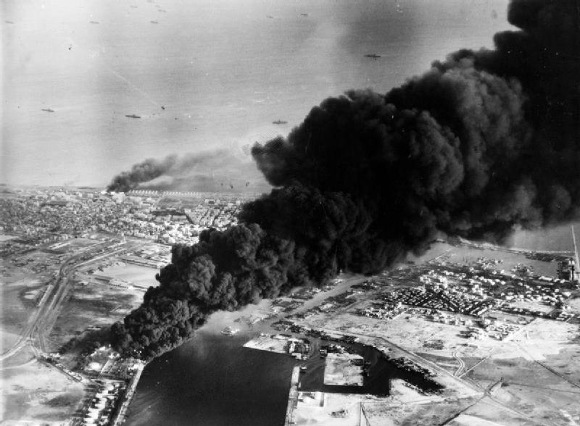Articles
- The 20th century
- Key events
- Making sense of the tangible world
- Health and Welfare
- Space exploration
- Scientific advancement: computers, technology & textiles
- Monarchy
- Democracy & social mobility
- Transport and leisure
- Colonialism & post-colonialism
- Sexuality, marriage, parenthood & divorce
- Income & consumerism
- Humans and the environment
- Educational context
- Mass culture & entertainment
- The world of work
- Making sense of the intangible world
Colonialism & post-colonialism
The British Empire to the end of the First World War
At the start of the twentieth century, Britain ruled over the largest empire that the world had ever seen. But Britain's position as the most powerful nation in the world was already being overtaken by Germany and the USA, in terms of productivity and finance.
Britain's control of its Empire was weakening. Canada was already largely self-governing, and the same right was granted to Australia in 1901. There was also strong pressure from Ireland for Home Rule. (See Ireland and Northern Ireland.) However the bonds were strong enough that, during the First World War, Britain could rely heavily on support from countries within its Empire.
Britain was on the winning side of the four year conflict and, as a result, it gained control of extra lands, making the empire larger than it had ever been. However, the war drained much of Britain's wealth and power. Furthermore, naval developments in the USA and Japan now threatened Britain's claim to rule the waves.
Between the wars
Between 1918 and 1939 Britain's control of its Empire continued to weaken:
- In 1921, as a result of an Anglo-Irish war, much of Ireland was given the right to rule itself, although it was still, technically, part of the British Empire
- The Balfour Declaration of 1926 gave Canada, Australia, New Zealand, South Africa and Ireland complete independence from British control. They were now voluntary members of a British Commonwealth of Nations
- Throughout this period, there was also ongoing unrest in India in support of independence from British rule.
The Second World War
Britain declared war on Germany in 1939. This action automatically included the countries of the Empire in the conflict. With the exception of Ireland, the Commonwealth countries all joined Britain in the struggle against the Axis powers.
In 1941, Japan entered the war. Britain now had to defend its interests in Europe and in Asia at the same time. Its weakened position was shown by its rapid surrender to the Japanese, notably in Singapore. Singapore had been regarded as an impregnable fortress and its loss greatly damaged British prestige throughout the Empire.
The aftermath of the Second World War
By 1945, although Britain was on the winning side in the war, it was bankrupt and had to rely on huge loans from the USA. It became that much harder to sustain a military and civil service presence throughout the Empire, particularly in the face of growing demands for independence from British rule.
In the twenty years after the end of the war in 1945, successive British governments accepted that the process of the Empire’s disintegration was inevitable. In this period, the number of people under British rule beyond the UK itself fell from 700 million to five million. Of these, three million were in Hong Kong.
The Suez crisis, 1956
 The Suez Canal links the Mediterranean Sea and the Red Sea. For Britain, it provided a short cut to the Far East and for many years, Britain had a military base there. In 1956, the Egyptian government took full control of the canal. Britain conspired with France and Israel to retake control of the canal by force but the plan was a disastrous failure and it demonstrated to the world that Britain was no longer a major power.
The Suez Canal links the Mediterranean Sea and the Red Sea. For Britain, it provided a short cut to the Far East and for many years, Britain had a military base there. In 1956, the Egyptian government took full control of the canal. Britain conspired with France and Israel to retake control of the canal by force but the plan was a disastrous failure and it demonstrated to the world that Britain was no longer a major power.The end of empire
The process of granting independence to former colonies, which mostly became members of the British Commonwealth instead, continued throughout the 1970s. By the early 1980s, Britain only ‘ruled’ over scattered islands and outposts.
In 1982, one group of islands, the Falklands, was occupied by Argentina. A British task force successfully regained control, which to some extent restored British pride, after the damage of the Suez crisis.
The last major handover of British territory came in 1997, when Hong Kong was returned to Chinese control. Britain now oversaw just fourteen Overseas Territories, some of them uninhabited.
Most of Britain's former colonies and protectorates continued to be members of the Commonwealth of Nations, a voluntary and non-political organisation, headed by Queen Elizabeth II. Sixteen of them continue to recognise her as Head of State.
World War I, also know as the First World War and the Great War, was a global conflict from 1914 – 1918, centred in Europe, involving all the world’s major economic powers in two opposing alliances.
The nations of Germany, Japan and Italy, which fought against the Allies in the Second World War, were collectively known as the Axis or Axis powers.